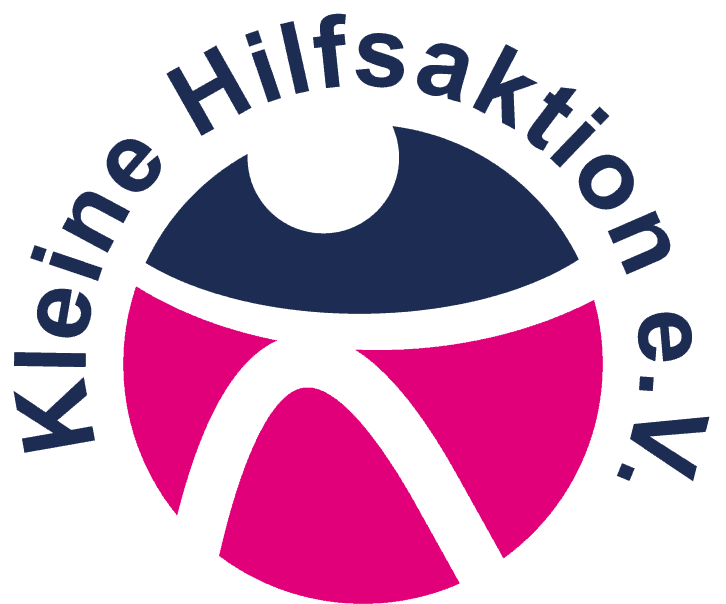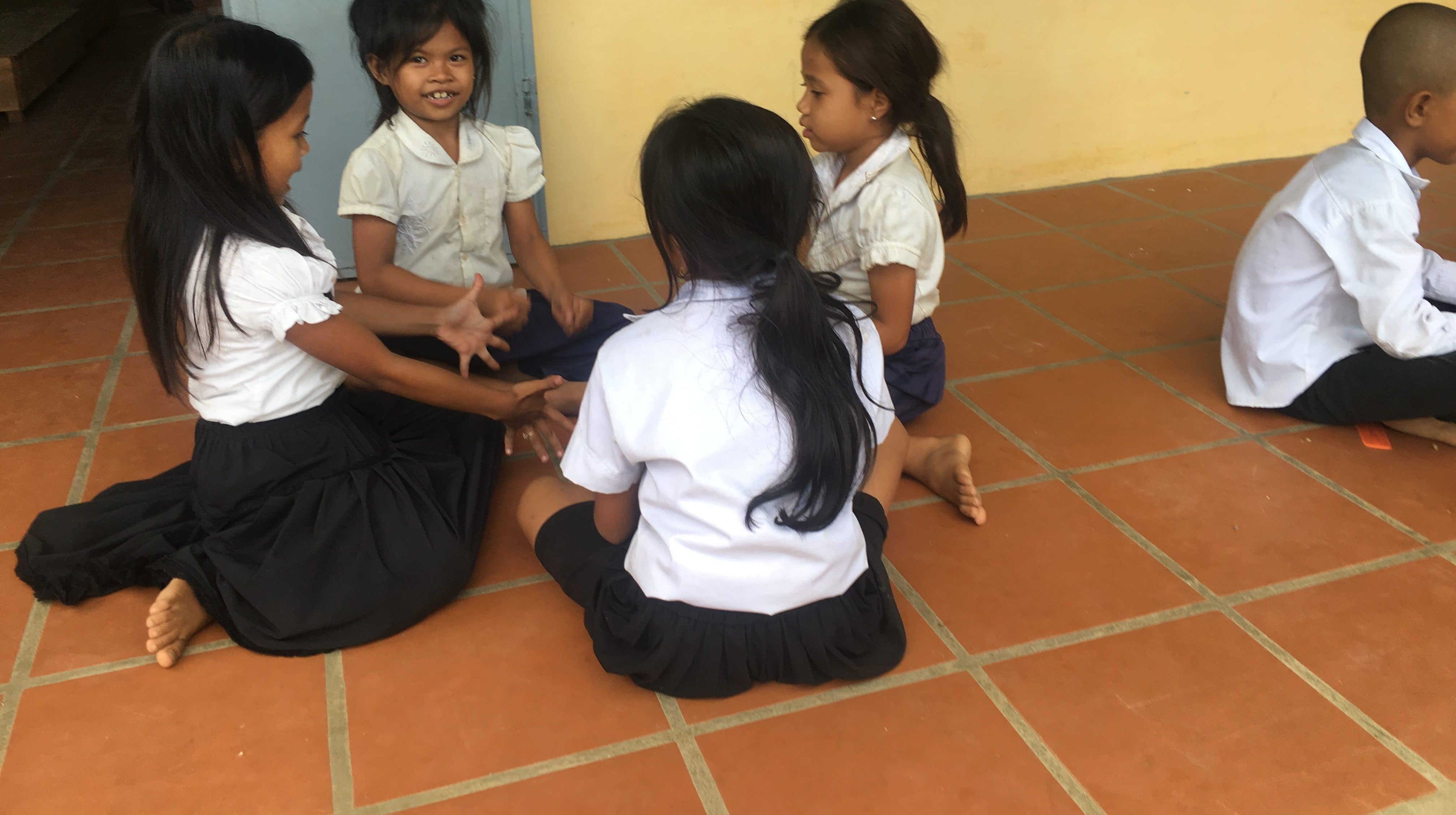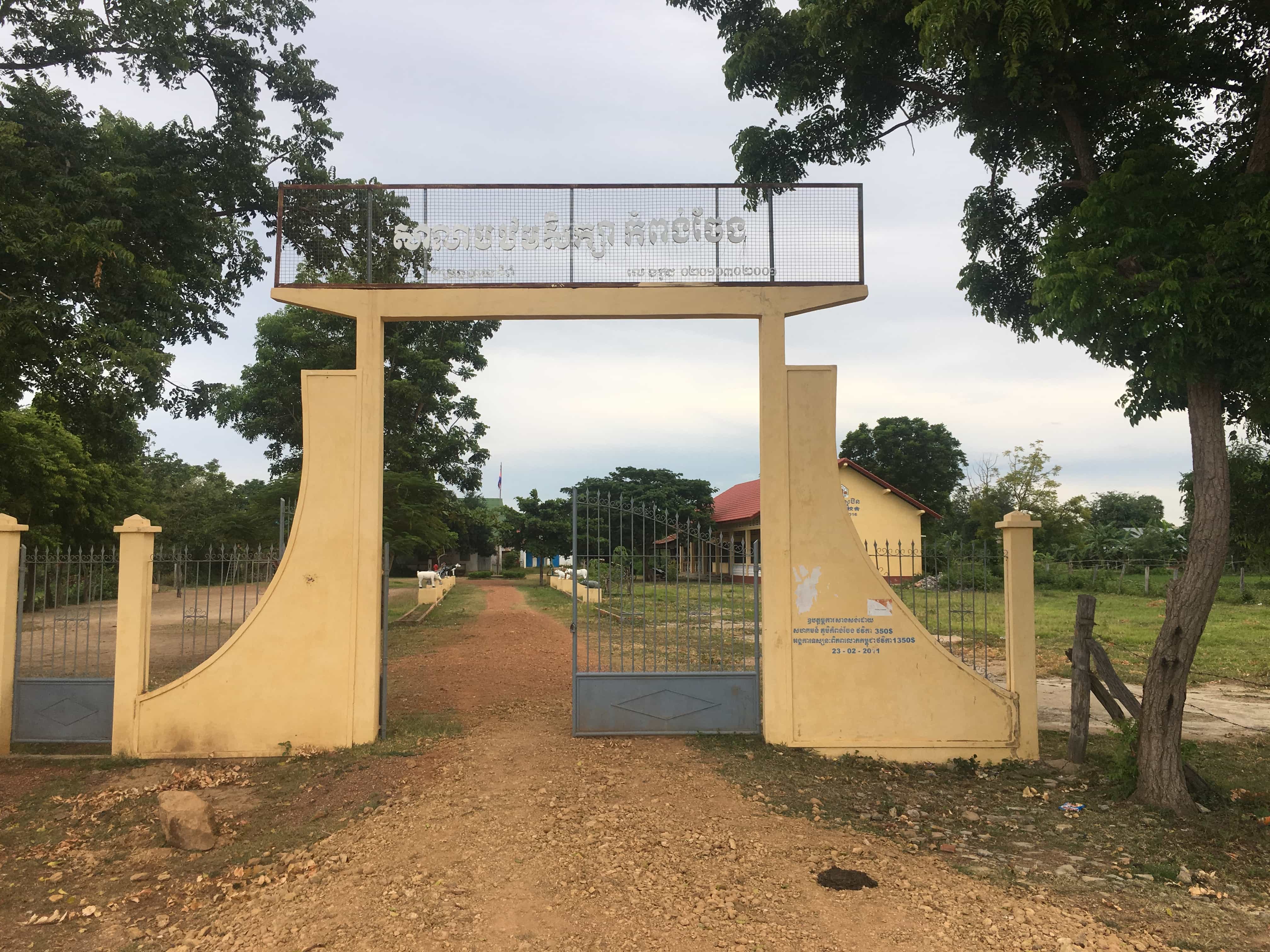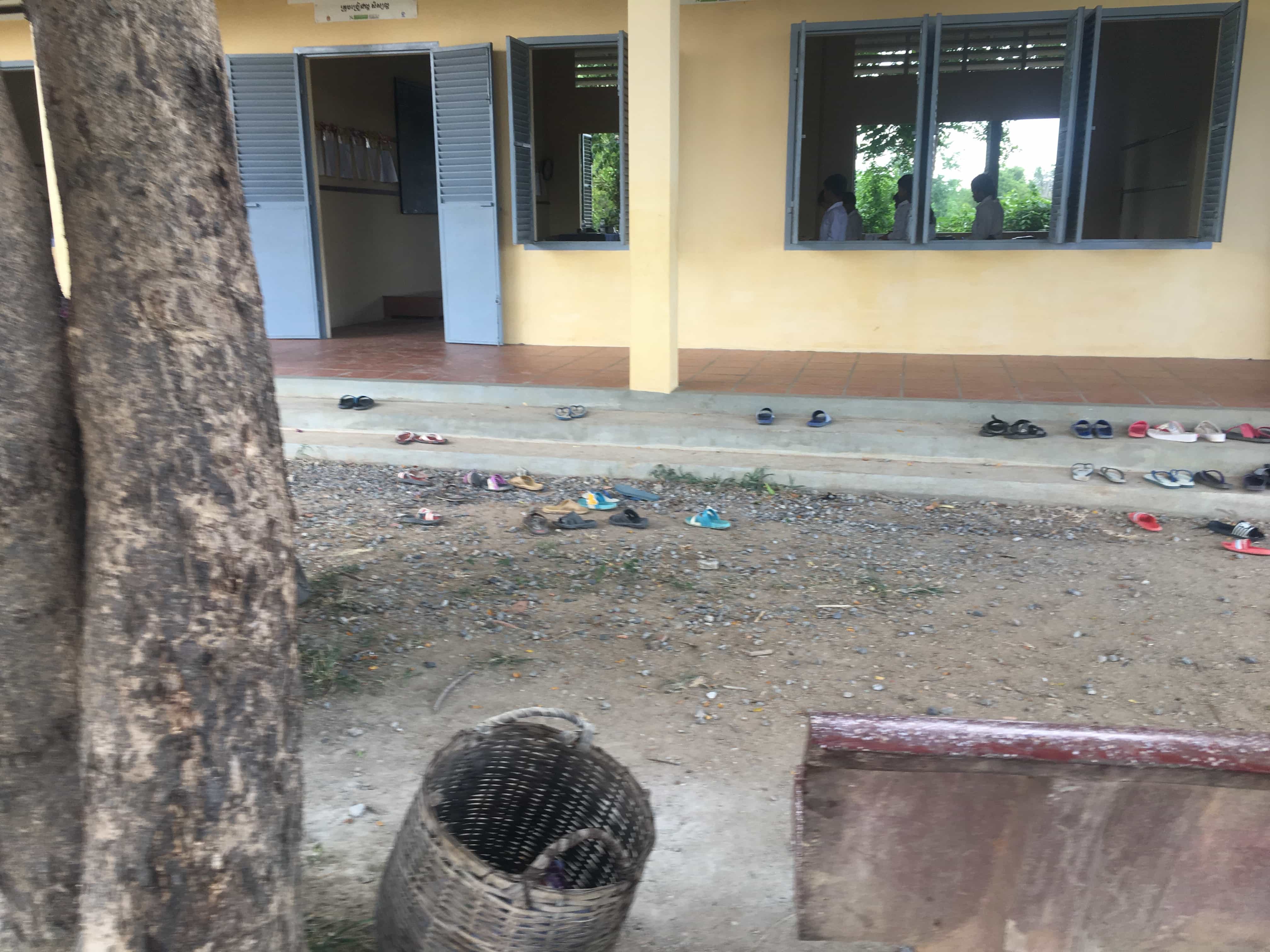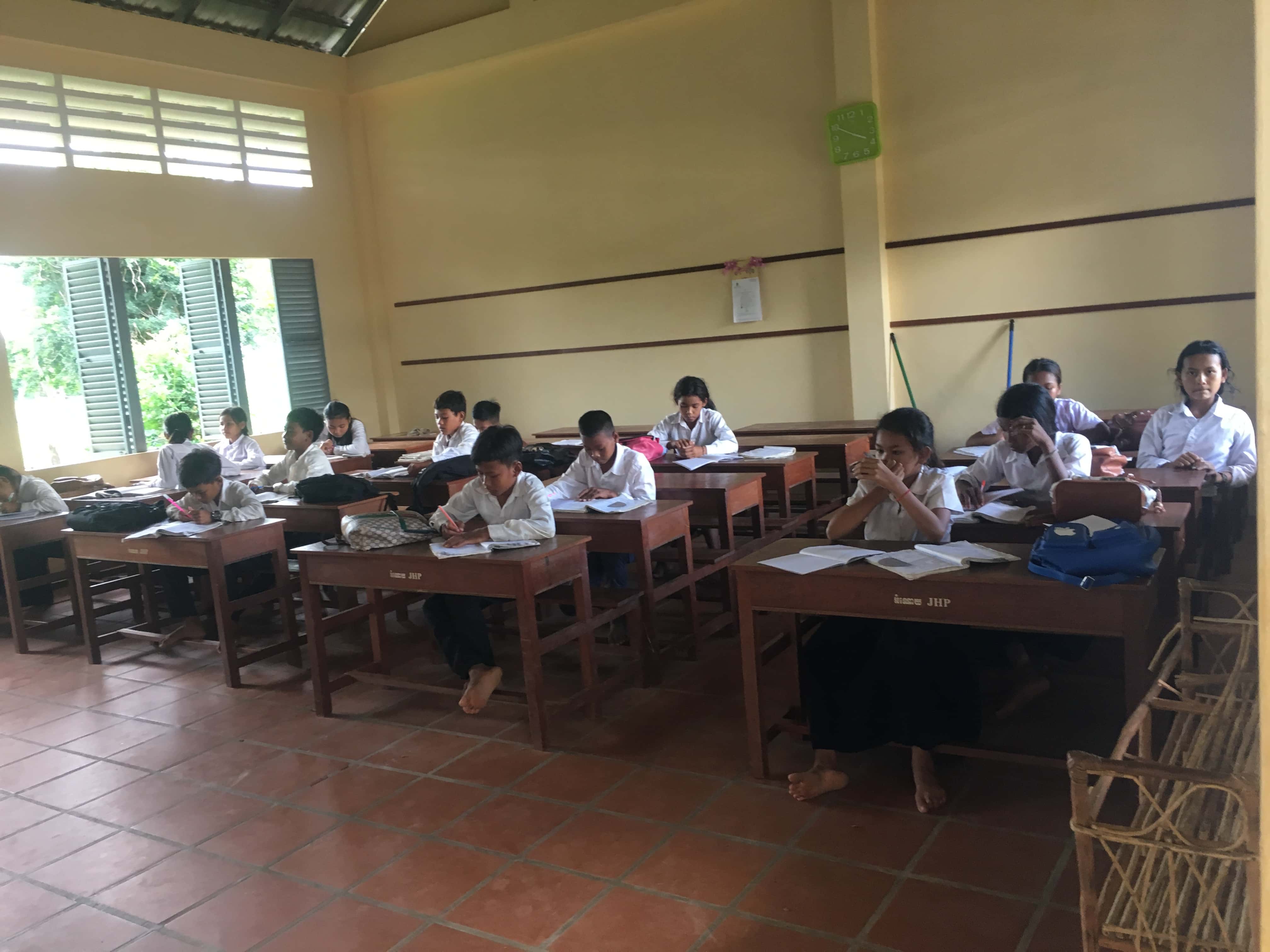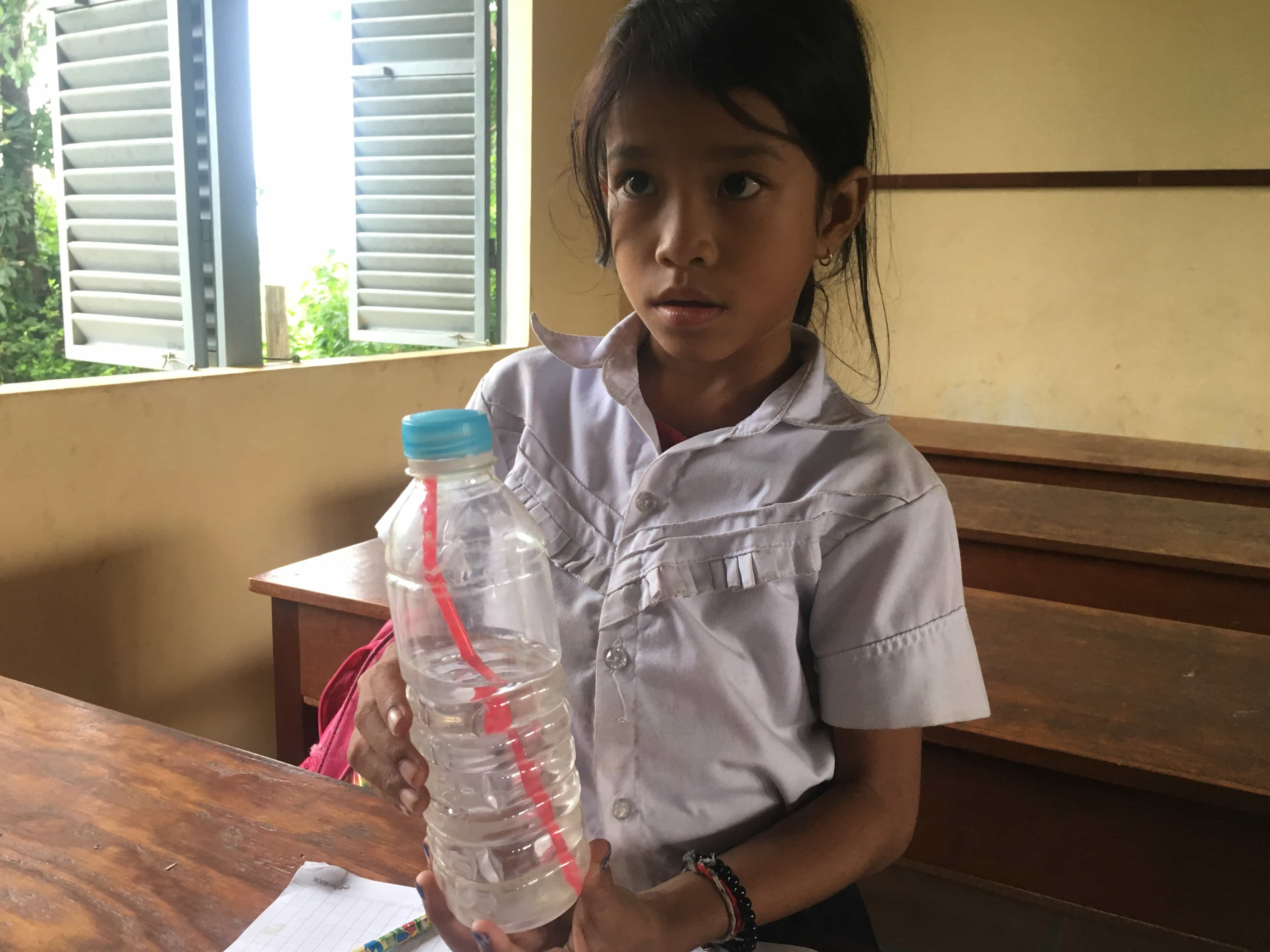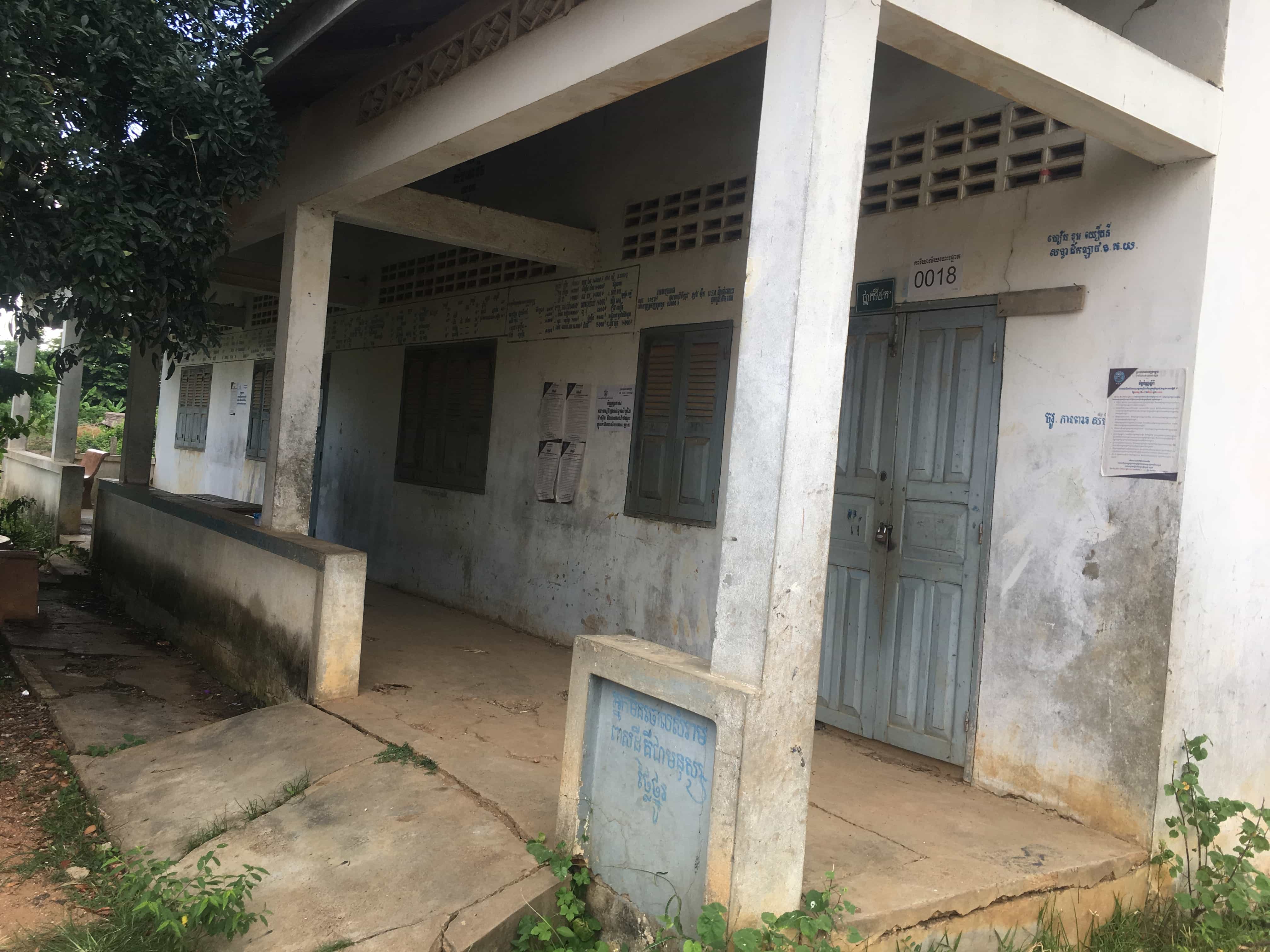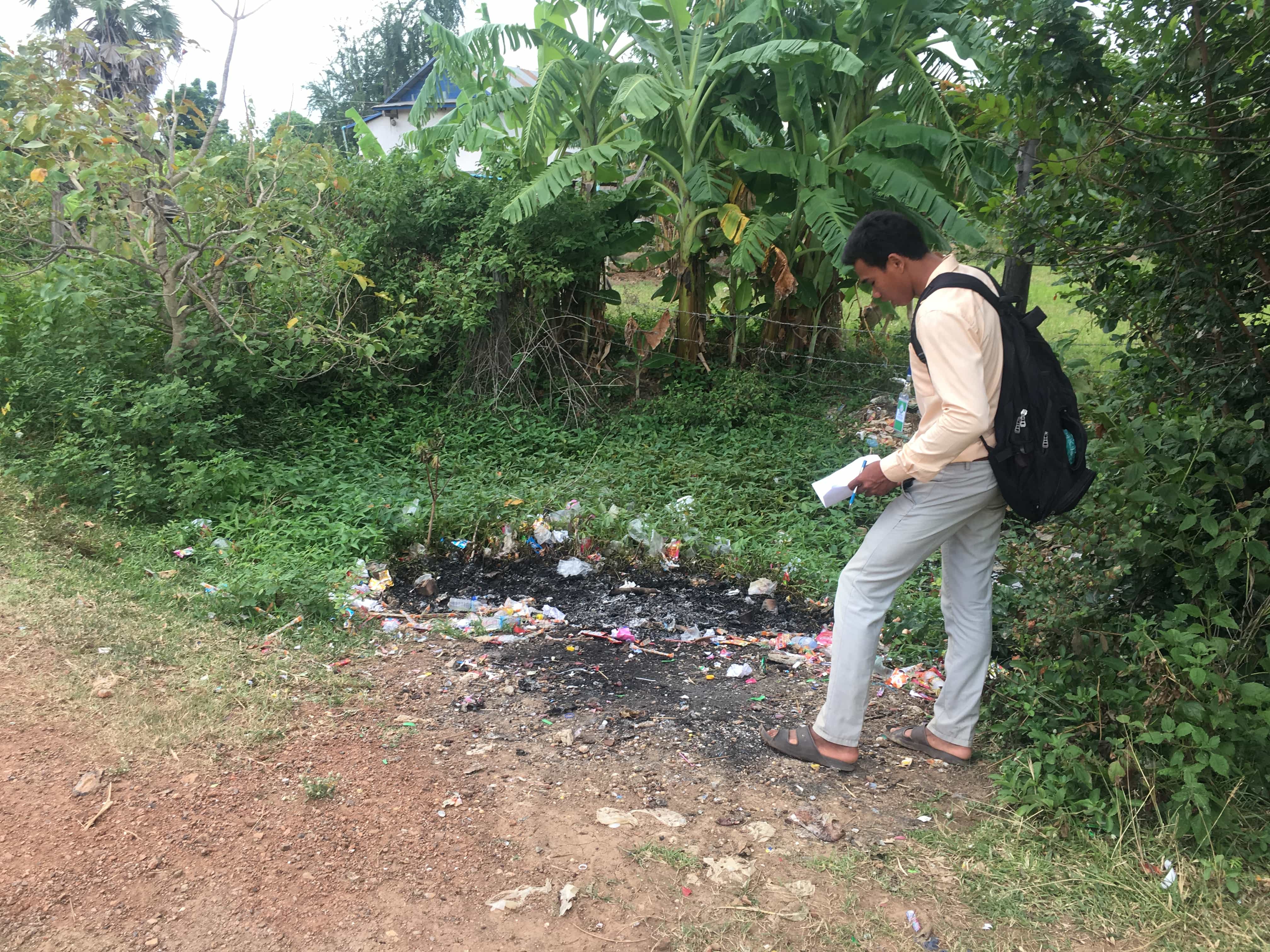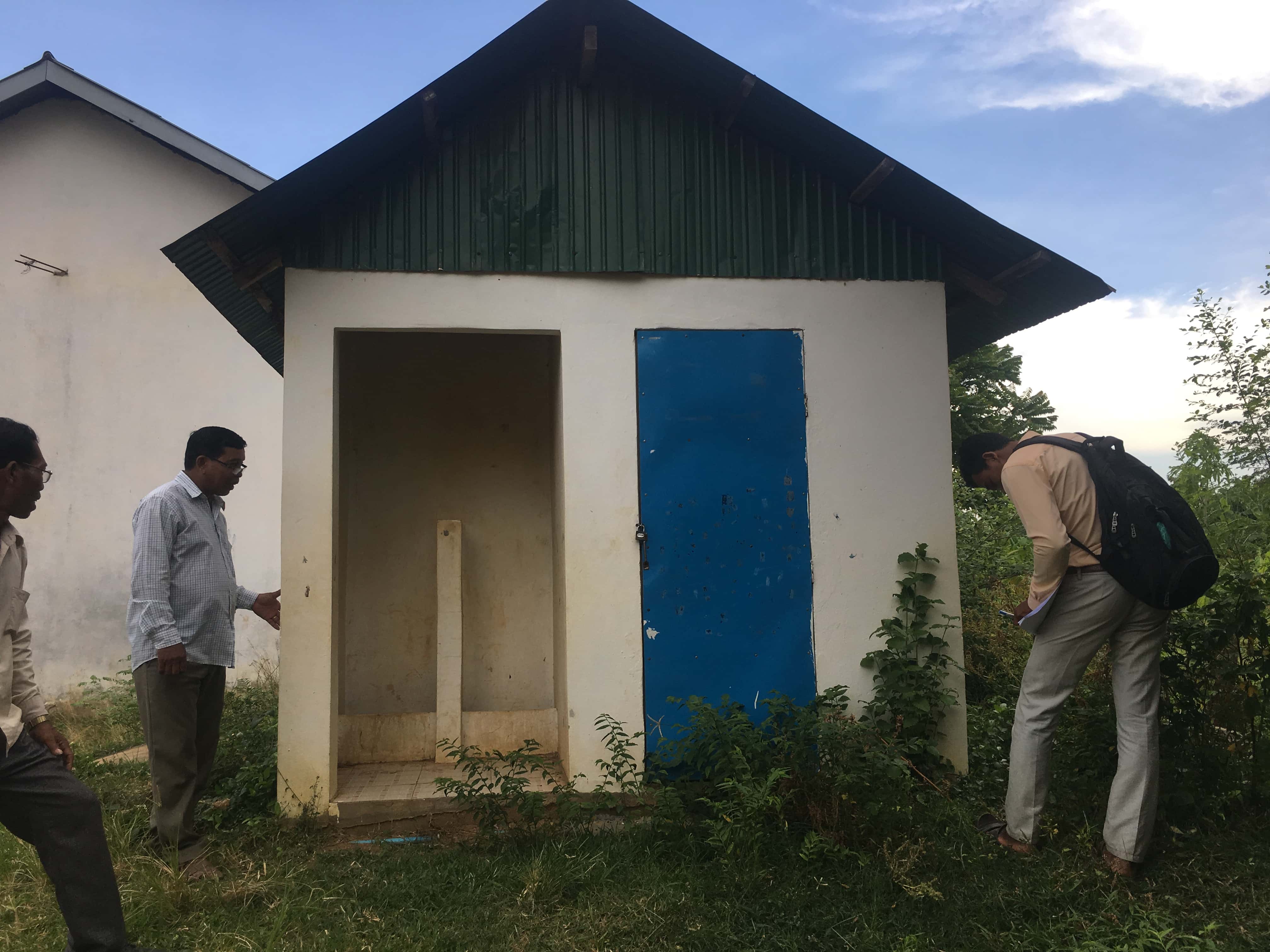Kampong Cheang Primary School
School history
Kampong Cheang Primary school is located in Toul Chraneang village, Baydamram commune, Banan district, Battambang province. It’s 9 km from Banan’s district capital. This school was built in 2012 on 6000 squares meters with 2 concrete buildings. There are 103 children attending the school.
State of the school before the conversion
Power supply
None Available
Water resources, incl. WaSH
There is 10,000 cubic meters of rainwater storage capacity and a latrine building containing 4 toilets. The school has 10,000 liters of rainwater storage and pond that provide water during the rainy season, but due too water supplies being insufficient to the school’s needs, the director spends $5 to buy a 1 tank full of water from a local truck. The school does not provide drinking water to the students in both the rainy and dry seasons. The water situation is very difficult in the dry season as the rainwater tank quickly runs dry and water for day to day use comes from the pond or from the tank truck.
Comment: This school doesn’t provide drinking water to the students they just encourage them to bring from home. There are no hand washing stations at the school. The children wash their hands from a shared bucket, which is very unsanitary
Condition of the latrines
There is one latrine building containing four toilets. The building and toilets are structurally in good condition, while the sanitation is good, it could be improved. The latrines do not function when there is not enough water, which is much of the dry season.
Waste Management
While there are garbage cans in each classroom, there aren’t any on the school grounds, which results in the playground being contaminated with plastic and other garbage.
About 60 m from the main classrooms there is a furnace for burning garbage. When the garbage is burned, which is not regularly, it is at 5pm, when the children have gone home.
General condition of the school (cleanliness / maintenance)
There are duty rosters for collecting trash, maintaining the RRH and cleaning the latrine. However, it appears that the scheduling on the rosters is not followed very carefully by the teachers or students. The school need to have more training about hygiene and environment.
Upgrading the school
Planned Measures
- Rainwater collector, including foundation and rainwater delivery system: 6 pcs. with 4,000 l each
- Bio-Sand-Filter (BSF): 3 pcs.
- Hand washing stations: 2 pcs.
- Latrine (1 toilet): 0 pcs.
Teacher training
- Project organization and planning
- WASH use and maintenance
- Waste Management in cooperation with Plastic Free Cambodia
Student Group Formation & Training
We collecting smart student from each level of class to form them to become Youth Club and let them understand:
- How to leading group
- How to do teamwork
- How to set Washing Activities in their school
- How to share knowledge to the others
- How to report their activity.
Water analysis
All drinking water will be tested to ensure that the drinking water is safe and clean
Monitoring & Evaluation
Ongoing
Cost per capita / child for an effective, long-lasting and sustainable implementation of
basic living conditions 58,45 €
Date: September 13, 2017
Fazit
With a total budget of just € 6,020.00, the hygienic learning and working conditions for 103 pupils, six teachers and other school staff could be improved effectively, long-term and sustainably.
The WaSH project at Kampong Cheang Primary School was implemented on budget and all of the specified goals were achieved. The quality and quantity of the WaSH infrastructure and technologies installed are continuously checked by the local organization, the partner of the small aid campaign.
Date: January 11, 2019
Project coordinates: 12.967278, 103.152167
Emergence and meaningfulness – WaSH (water sanitary hygiene) project
During our trip in January / February 2013, we became aware of the disastrous conditions of a school near Banan. There is no drinking water, no hand washing facility and no toilet. The children are forced to releive themselves in the bushes behind the school. It is not hard to imagine which health dangers emanate from this condition.
When Bong and I visit the school together with our team, we ask the children who would like to have something to drink. About 30% of the small children have some water, bottled in an old plastic bottle, cloudy and unimaginably dirty. When a little girl proudly pulls out her bottle to drink from it, I suddenly feel the need to knock the bottle out of her hands. It brings tears to my face, especially as I myself have a little daughter at home. The idea that she would have to drink this broth and then make her emergency (95% diarrhea) behind the school, all without toilet paper and without the option to wash your hands …. this idea will not leave my mind for days.
We had to work out a plan of how we could change this. Back in Germany, I had the opportunity to present this project to the Rotary Club „Willich“. My listeners quickly realized that with little money, many children can be sustainably helped. The projects are sustainable, effective and almost unbeatable in relation to the budget needed and the quality / quantity of the aid. We are building a pilot project and one of our most successful programs has its origins: WASH.
Today, four years later, in cooperation with the two Austrian organizations „Wasser-für-die-Welt“ and „Last-Hope“, the Rotary Clubs „Willich“ and “Neuss”, we have launched the „moeglichkeitenschenken“ initiative Partner agency „springer f3“ and, of course, our partner organization „Bareebo“ has already converted 21 schools and thus helped around 3,000 children.
Talk to us and become a development worker. We have schools that fit into your budget and you can help there effectively, concretely and sustainably.
Details
Status: Project completed
Budget: 6.020 €
Sponsor: Rotary Club Neuss
